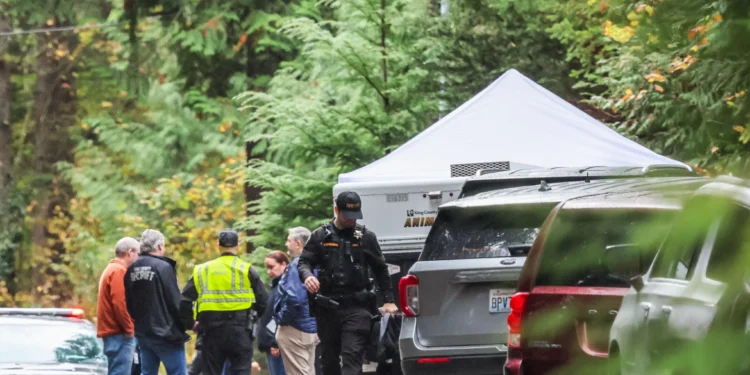Attorneys representing a 15-year-old accused of killing five members of his family in Fall City are seeking to delay a pivotal legal decision that could determine whether the teen is tried as a juvenile or an adult. In court filings submitted July 22, the defense team cited the complexity of the case and what they describe as a deeply troubled family environment, asking for additional time to complete interviews and psychological evaluations.
The teen, whose name has not been publicly released due to his age, faces five counts of first-degree murder in connection with the October 2024 shooting deaths of his parents, Mark and Sarah Humiston, aged 43 and 42, as well as three of his siblings: 13-year-old Benjamin, 9-year-old Joshua, and 7-year-old Katheryn. An 11-year-old sister survived the attack by escaping to a neighbor’s house and calling 911, according to court documents.
Prosecutors allege the killings took place late at night while the family slept. Initial reports indicate the accused teen called emergency dispatchers and claimed his brother Benjamin had carried out the shootings and then taken his own life, a claim that investigators later determined was false.
Defense attorneys are asking for the decline hearing, the legal process that determines whether the case moves to adult court, to be postponed until at least April 2026. They argue the delay is necessary to interview the remaining 76 of 98 potential witnesses and to allow time for extended forensic and psychological evaluations, which could continue through August 2026. So far, only 22 witnesses have been interviewed, the motion states.
Underlying the request is a broader claim: that the context surrounding the shootings cannot be separated from the environment in which the children were raised. Court filings depict the Humiston home as isolated and governed by extreme religious ideology, distrust of medicine and government, and strict homeschooling with minimal outside contact. The household, according to the defense, fostered a “rigid, militant, and survivalist” lifestyle that may have significantly shaped the mental and emotional development of the accused.
Statements from extended family and neighbors appear to corroborate some of these claims. The boy’s maternal grandmother reportedly told investigators that Sarah Humiston was emotionally abusive and controlling, and that she had once considered alerting child protective services. Other relatives and community members have described longstanding concerns about the children’s well-being and the household’s insularity.
Defense attorneys maintain that the teen was previously described by others as kind, respectful, and strongly devoted to his family. They argue that those attributes, alongside alleged exposure to psychological abuse, are critical to understanding what may have led to the fatal events last October.
Prosecutors, meanwhile, acknowledge the case’s complexity but oppose delaying the decline hearing into 2026. They argue that the hearing is not about establishing guilt or innocence, but simply about determining whether the juvenile system is equipped to handle such a case. From their standpoint, the defense’s extended timeline may be more appropriate for trial preparation than for the preliminary jurisdictional question at hand.
A status conference in the case is scheduled for September 2025, where the court will consider whether to grant the delay.







